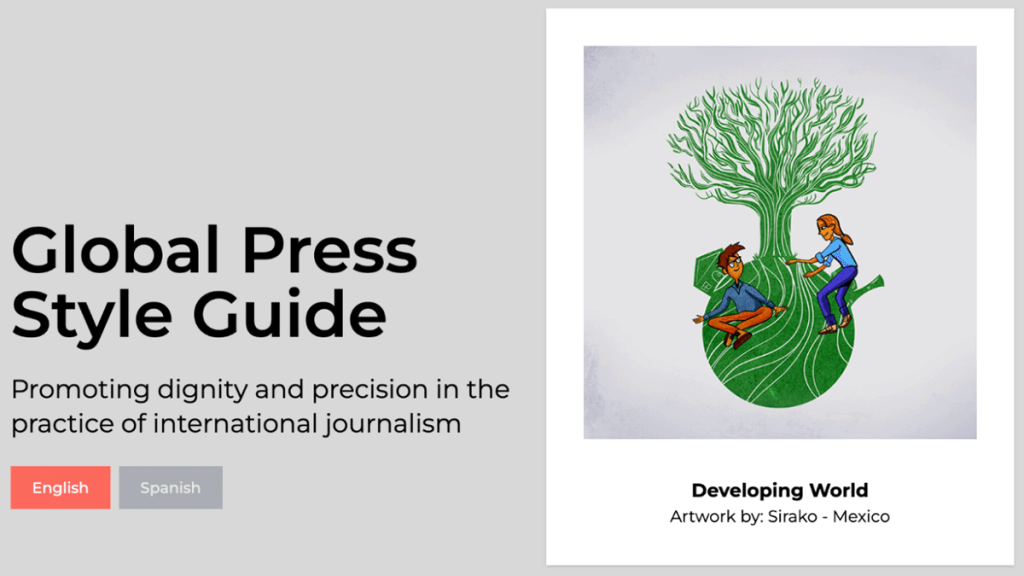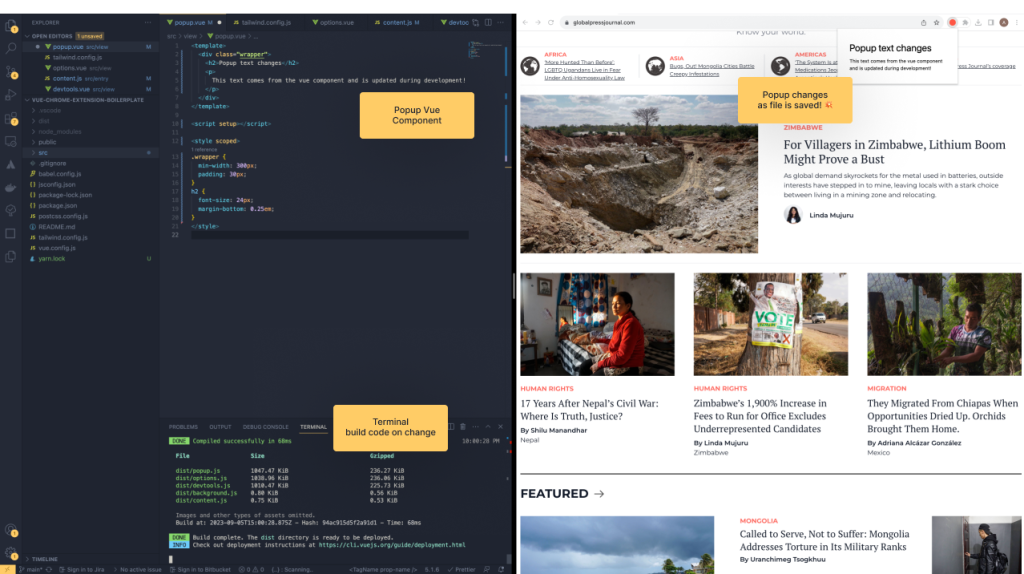
The Style Guide user experience survey
Help us build our browser extension
It’s Global Press reporters, through the course of their reporting, who suggest new entries for the Global Press Style Guide so that their stories can be accurate and precise and hold up the dignity of the people they are writing about. The Style Guide is a vital tool for Global Press reporters, and their input advances its usability and relevance.
Global Press intends to replicate the best parts of the experience of our Style Guide in the browser extension we are building as part of the RJI Fellowship. This browser extension will allow users of the style guide to utilize it through the extension, rather than having to navigate to the style guide web page.
As a part of our user research, we want to understand how you use browser extensions and style guides. We want your input whether you are reporters, copy editors, visual journalists or other types of journalists.
Please help us by filling out this short (four questions only!) survey. Your input will help guide an optimal user experience on the browser extension for style guides.
What we’ve built so far
Product developer for Global Press, Andy Neale, explains: “The original style guide was built using the Vue.js framework. We have been focused on building a chrome extension boilerplate/framework that runs Vue and that will form the basis for the rest of the development of the project. This will allow us to leverage the same methodologies to build the chrome extension but in a smaller, more compact version of the current style guide.”
We achieved this by using 3 Vue applications within a code base that outputs each of the main javascript files that a Chrome extension needs to operate, such as the content, popup, and options views. One of the main requirements was to be able to serve the code base during development so the extension can be installed in Chrome, and as we make changes the Chrome views are updated so we can see the changes as we build.

Our style guide core principles
The Global Press Style Guide is built on these three core principles:
- Principle 1: Don’t use words that force people to make assumptions. Terms like “developing world” and “global south” are sanitized synonyms for poverty. In Global Press’ U.S. audience research released in March 2023, zero percent of those surveyed could define or locate the “global south,” yet this term persists in many stories from established journalists. Reporters always strive for accuracy, so why use such vague and imprecise terms?
- Principle 2: People should be referred to as people as often as possible. Labeling a person as a “victim” or “survivor” reduces their whole identity to something negative that happened to them, stereotyping them and stripping them of any agency over their own lives. At Global Press, we avoid labels to ensure source dignity and reader clarity.
- Principle 3: Precision is required for dignity. Using accurate and precise terms to describe people and places is necessary to prevent bias and stereotypes. At Global Press, we ask sources to self-identify so that they can recognize themselves in stories. We don’t take shortcuts to accurately depict a person or a place, even if it means using more words.
“When reporters raise possible new entries for the Style Guide, our Style Guide committee engages in healthy debate on whether the term warrants a new entry, “ explained Terry Aguayo, Managing Editor of Global Press Journal. “We take great care to, for instance, provide a rule and a rationale for each entry, so there is clarity on why this entry is important, why it exists in the Style Guide, and how it should be used. Our goal is to provide context and consistency for Style Guide users who are looking to serve their sources with dignity and precision.”
Aguayo, who led the creation of the Spanish-language Guía de estilo, the first of its kind in the language, says, “We’ve built a user experience to facilitate seamless use of the Style Guide, including voice search and the ability to save terms. We also provide links to related terms and topics for all entries and use real-time data to surface trending terms.”
